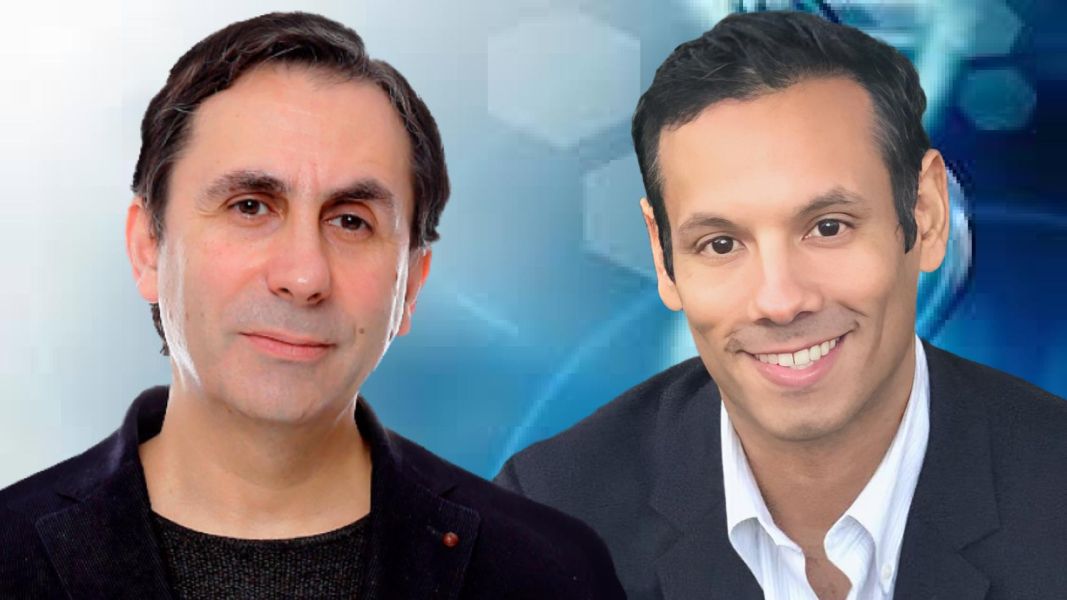Alex Martinez is the CEO and Co-Founder of Intrinsic Medicine, Inc., a Seattle-based biotech company. In this episode of his YouTube podcast, Dinis Guarda discusses the novel human milk biology to transform gut-brain axis disorders with Alex. The podcast is powered by Businessabc.net and citiesabc.com.

Alex Martinez is an executive and entrepreneur with a diverse background in the biotechnology and pharmaceutical industries, and law. He brings a decade of leadership experience in founding clinical-stage therapeutics.
During the interview, Alex explained to Dinis that Intrinsic Medicine, Inc. (formerly Lupa Bio) is a Seattle-based biotech company that has preclinical programs developing the Human-identical Milk Oligosaccharide (HiMO) molecules for conditions including atopic dermatitis, autism spectrum disorder, and rheumatoid arthritis.
Explaining the basic nature of HMOs, Alex tells Dinis:
“HMOs (and HiMOs) are the terraforming agents, i.e., they are communication molecules that help a mother to talk directly to the somatic cells in her baby’s body that are maturing the immune system, both in the adaptive systems and the foundational microbiome.”
This approach of Intrinsic Medicine to developing HiMO drugs stems from foundational human biology. Unlike traditional drug development methods, HiMO drugs boast a favorable safety profile due to their functional similarity to Human Milk Oligosaccharides (HMOs), ensuring a high margin of safety supported by scientific evidence.
Alex also told Dinis that these drugs exhibit a multifaceted impact on the immune system and microbiome, making them particularly effective in addressing complex diseases like Gut Immune Microbiome Brain Axis Disorders (GIMBADs).
Speaking about the GIMBADs, Alex explains:
“The dietary fibre goals and prebiotics are important. Those bacteria can produce a whole host of druglike metabolites, small molecules that bathe every single cell in our body, including our brain. These are small, active, and really low concentration. This has profound system level effects for the human organisation.”
The ‘Gut is the second brain’ ideology of Intrinsic Medicine
“Our guts came before our brains”, says Alex. “What I mean is that the gut nervous system developed before our Central Nervous System. This means that our gut and microbiome allowed the more complex organisms to evolve.”
Emphasising on the importance of the gut in maintaining the overall health of the human body, Alex explained the Gut Immune Microbiome Brain Axis Disorders (GIMBADs). GIMBADs, he says, encompass a spectrum of conditions arising from intricate interactions between the immune system, nervous system, and gut microbiota. These disorders span a wide range, from central nervous disorders like Parkinson’s Disease and Autism Spectrum Disorders to inflammatory conditions such as Inflammatory Bowel Diseases and Atopic Dermatitis. Even cancer and chronic idiopathic constipation fall within this complex category.
Its treatment, he highlights, demands a nuanced approach. To effectively address GIMBADs, it’s crucial to adopt a holistic perspective that recognizes humans as integral parts of the ecosystem, necessitating innovative therapeutic strategies like HiMOs.
According to Alex, HiMOs, or Human Milk Oligosaccharides, have remarkable functional similarity to compounds found in human biology. Notably, HiMOs demonstrate stability in stomach acid and resilience to enzyme degradation in the upper gastrointestinal tract. These molecules exert multifaceted effects, including fostering a balanced gut microbiota by promoting beneficial bacterial growth while inhibiting pathogens.
Moreover, HiMOs exhibit antiviral properties by acting as decoy receptors, regulate immune responses, and possess local and systemic anti-inflammatory effects. By strengthening the gut epithelial barrier, HiMOs contribute to mitigating “leaky gut” and bolster overall gastrointestinal health, making them a valuable therapeutic tool in combating GIMBADs and restoring holistic wellness.
Intrinsic Medicine: Developing HMO based therapeutic molecule for Parkinson’s disease
In developing therapeutic molecules for Parkinson’s disease, Intrinsic Medicine has harnessed the intrinsic potential of Human Milk Oligosaccharides (HMOs) to address the complex pathology of this neurodegenerative disorder.
“Our Parkisnon’s program is absolutely the most important program we have. It is not only vital for the people who have been waiting for so long for a new therapy, but we are advancing an intervention that’s on the cutting edge of the understanding of Parkinson’s because it is a clinically defined constellation of symptoms”, says Alex.
With a nuanced understanding of Parkinson’s disease pathology, Intrinsic Medicine has tailored HiMOs to exert comprehensive effects, including modulating gut microbiota, regulating immune responses, and mitigating neuroinflammation.
“It is really a very special opportunity but we feel a lot of responsibility as well because there are a lot of people suffering and in need where we can look at such strong evidence supporting the hypothesis in a very short period of time”, Alex tells Dinis.
Research at Intrinsic Medicine with AI and advanced technology
Alex tells Dinis that through sophisticated algorithms and machine learning techniques, AI can analyse vast amounts of data, including genomic information, disease pathways, and drug interactions, to identify potential drug candidates more efficiently than traditional methods.
“AI is the future of novel drug discovery. I used evolutionary intelligence to build my pipeline, and AI helps me identify it”, says Alex. Further explaining how AI impacts the research at Intrinsic Medicine, he says:
“We have uniquely curated this data and then we are going to have a clinical data to link to it. This will help us create bespoke AI that works within this framework and can leverage our dataset.”
Concluding the interview, he adds:
“I view Intrinsic Medicine as a keystone species in an ecology that I am trying to create. We work with academic researchers who are always eager to see their stuff moving forward.”

Pallavi Singal is the Vice President of Content at ztudium, where she leads innovative content strategies and oversees the development of high-impact editorial initiatives. With a strong background in digital media and a passion for storytelling, Pallavi plays a pivotal role in scaling the content operations for ztudium’s platforms, including Businessabc, Citiesabc, and IntelligentHQ, Wisdomia.ai, MStores, and many others. Her expertise spans content creation, SEO, and digital marketing, driving engagement and growth across multiple channels. Pallavi’s work is characterised by a keen insight into emerging trends in business, technologies like AI, blockchain, metaverse and others, and society, making her a trusted voice in the industry.





























